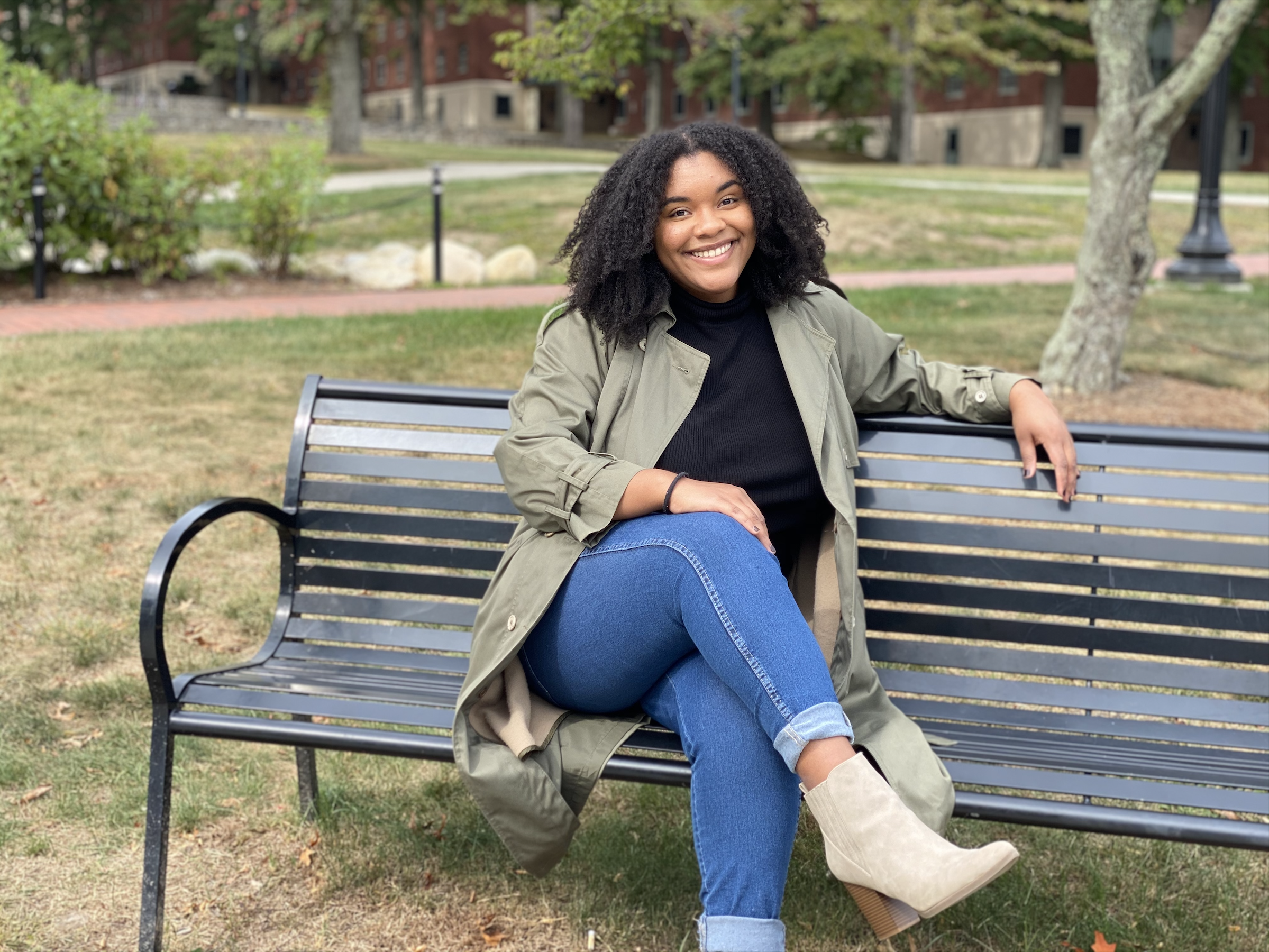Brianna Chance ‘23 (SFA) says the philosophy of “try everything” is what led her to rewarding research experiences during her first year at the University of Connecticut.
Chance, a music education and vocal performance major from New Haven, was intensely involved in her school music programs before college. Chance credits the music educators in her life as the people who helped her the most, helping her through difficult situations.
“They were the people I could rely on,” Chance says. “So, I said I needed to do this because it saved me as a kid. It’s a tribute to myself and the people who helped uplift me.”
During her first year at UConn, Chance was part of La Comunidad Intelectual, a Latinx living and learning community. Chance and her peers quickly recognized there were relatively few Latinx people working in higher education.
“All the students felt this sense that there weren’t many people who looked like ourselves at UConn,” Chance says.
Diana Rios, associate professor of communication and member of El Instituto: Institute of Latina/o, Caribbean, and Latin American Studies, began collecting testimonials and data about Latinx students’ experience at UConn through the learning community’s class.
“We tried to examine why there were not many people who look like me in the field and how we can change it,” Chance says.
Chance spoke to members of her learning community and alumni from different majors and ethnicities. She then presented the findings of this research at a professional conference with Rios.
“It was so gratifying,” Chance says. “For me it was almost a form of activism and education. Being able to voice that concern to a bunch of people from all over the U.S. meant so much to me.”
Chance’s concerns were well-received by the members of the academic community.
“There was this immense feeling of warmth because so many people agreed with me,” Chance says.
Chance’s experience showed her research is not only for those in STEM fields.
“I thought research had to be done in a white lab coat over a microscope,” Chance says. “I didn’t realize research could be going out and gathering people’s stories.”
Chance hopes to apply the research skills she learned working with Rios to questions surrounding students of color in the arts that have been overlooked, since they are issues the predominantly white participants do not face.
“I really want to connect what it means to be a student of color and be pursuing the arts and not be tokenized,” Chance says.
Last semester, Chance worker with Fostering Connections for College Success under the Center for Academic Programs, which connects students who identify as having a foster care background and/or independent status with resources to prepare for college.
“Working with that program has definitely broadened my horizons,” Chance says. “I realized there are so many more dimensions to marginalized groups on campus. It’s not just about your race, it’s about how you were brought up.”
Chance also works to advocate for homeless and food insecure students. Seeing that most of these students are students of color, Chance wants to research the link between race and homelessness and food insecurity.
Even with her interest in research, Chance ultimately plans to be a music educator.
“A lot of the work I want to do is on the ground,” Chance says. “I feel I was created to really be in the field and work with people.”
Chance encourages students interested in conducting research to reach out to professors conducting work they care about, even if it is outside their major as it was for Chance.
“Being at a research university, the possibilities are endless,” Chance says. “Don’t do research for the sake of it otherwise you probably won’t enjoy it. It has to be something you’re passionate about.”
Students interested in learning more about research opportunities at UConn can check out virtual events during the Month of Discovery.



